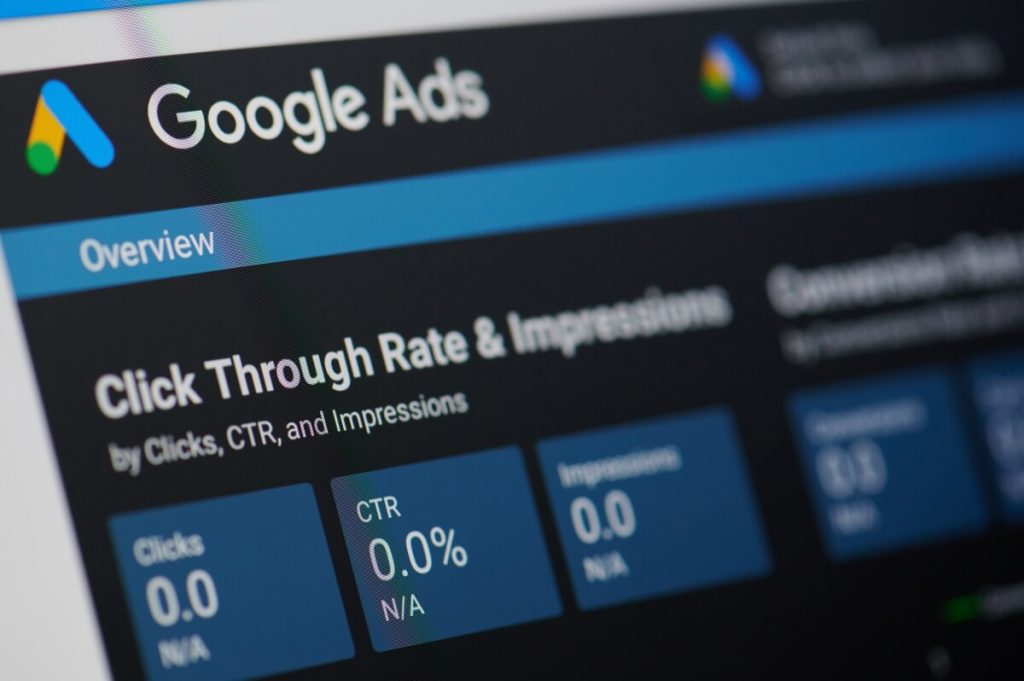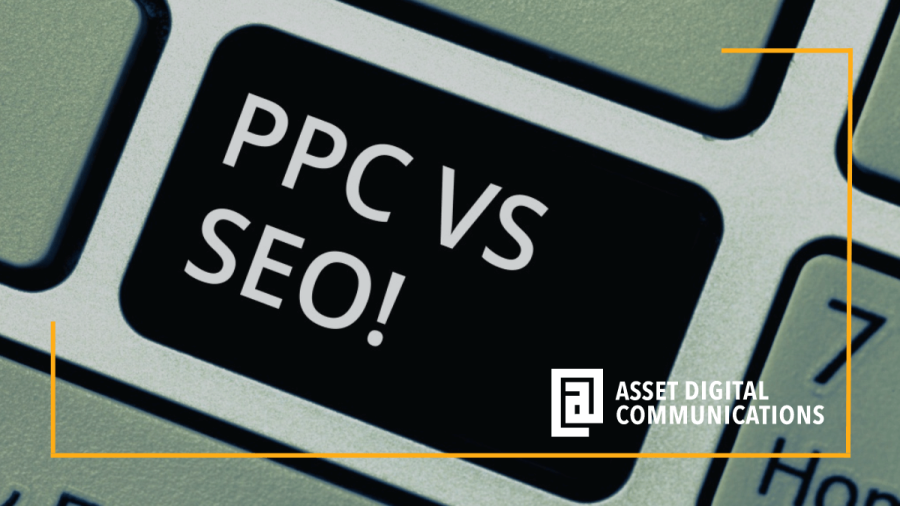PPC vs. SEO: Which is Best for Your B2B Business?
Today, businesses, particularly those operating in the B2B sphere, find themselves engaged in constant pursuit of effective digital strategies to differentiate themselves within a highly competitive market.
This challenge is amplified for small to medium-sized B2B enterprises who are faced with resource constraints and the imperative to maximize each investment. Hence, having to make a decision between strategies such as PPC (pay-per-click) and SEO (search engine optimization) assumes paramount importance.
Each offers a unique pathway to online prominence, with distinct advantages and potential pitfalls. As these strategies vie for your attention and budget, the pressing question emerges: Which aligns best with your business objectives and growth aspirations?
In this post, we’ll delve deep into the nuances of both, guiding you toward an informed decision.
PPC vs. SEO: What are They?
In the bustling digital marketplace, imagine your website as a storefront in a vast online mall. Just like in a physical mall, traffic is essential. The more visitors you have, the higher the potential for sales.
PPC and SEO are two different strategies businesses use to attract those visitors. PPC, or pay-per-click, is like paying for a prime storefront location where more people are likely to walk by and notice your shop.
You’re paying for a premium spot, ensuring immediate visibility. According to Statista, global PPC search ad spending reached over $185 billion in 2022, underscoring its popularity among businesses seeking instant results.
On the other hand, SEO is like designing your storefront to be so appealing and relevant that, over time, more and more shoppers naturally gravitate toward it. It’s about organically building your reputation and visibility.
While PPC and SEO aim to attract potential customers, their approaches, costs, and outcomes vary significantly.
One offers immediate, paid visibility. The other requires patience, effort, and often less direct expense but promises sustained traffic in the long run.
Pay-per-click (PPC) Advertising
 Imagine you’re at a bustling auction, where businesses bid for a prime advertising spot in a popular magazine. The highest bidder gets the most visible spot, ensuring their ad is seen by the most readers.
Imagine you’re at a bustling auction, where businesses bid for a prime advertising spot in a popular magazine. The highest bidder gets the most visible spot, ensuring their ad is seen by the most readers.
PPC operates on a similar principle but in the digital realm. Advertisers bid on keywords relevant to their target audience, and the highest bidder’s ad gets displayed prominently in search engine results or on partner websites.
PPC advertising is a model where businesses pay a fee each time their ad is clicked, essentially buying direct visits to their site. For instance, if you’ve ever noticed the “Ad” label next to search results on Google, those are PPC ads.
Businesses make an average of $2 in revenue for every $1 they spend on Google Ads, showcasing the potential ROI.
Pros of PPC Advertising
For B2B businesses, the benefits of PPC are many:
- Immediate Visibility: Unlike organic strategies that take time, PPC offers instant results. Your ad can start appearing the day you launch your campaign.
- Targeted Traffic: PPC allows businesses to target specific demographics, locations, and times of the day. For a B2B company targeting IT professionals in Toronto, ads can be tailored to appear only for this specific group.
- Budget Control: You decide how much you’ll pay for a click and set daily or monthly budgets to ensure costs don’t spiral out of control.
- Measurable Results: With platforms like Google Ads, businesses can track everything from the number of clicks and conversions to their exact ROI.
Cons of PPC Advertising
- Costly: Especially for highly competitive keywords, the cost-per-click can get expensive. And the costs stay pretty similar over time.
- Continuous Investment: Unlike SEO, where you can reap long-term benefits from initial efforts, PPC requires ongoing investment. Stop paying, and your ads will disappear.
- Management Complexity: Ad spending can spiral without proper management, and ROI can plummet.
Search engine optimization (SEO)
 Picture a library, vast and filled with countless books. Imagine you’re an author, and your website is one of those books. Without a proper index or a recognizable cover, your book might remain tucked away, gathering dust on a remote shelf.
Picture a library, vast and filled with countless books. Imagine you’re an author, and your website is one of those books. Without a proper index or a recognizable cover, your book might remain tucked away, gathering dust on a remote shelf.
SEO is akin to giving your book a vibrant cover and a clear title and ensuring it’s indexed correctly so that every time a reader searches for a topic you’ve covered, your book is one of the first they see.
SEO is the art and science of enhancing a website’s visibility in organic search engine results. It’s not about tricking search engines but about making your website relevant and user-friendly. According to HubSpot, 64% of marketers invest time in SEO, indicating its importance in a comprehensive digital strategy.
Pros of SEO
For B2B businesses, SEO offers a plethora of advantages:
- Reaching Decision Makers: Consider a B2B company selling cloud storage solutions. By optimizing for terms like “best enterprise cloud storage solutions,” they can attract decision-makers actively searching for their services.
- Building Thought Leadership: By producing quality content and optimizing it for search, B2B businesses can position themselves as industry leaders.
- Long-Term Growth: A study by BrightEdge found that over 40% of revenue is captured by organic traffic, highlighting the potential of SEO-driven growth.
- Cost-Effective in the Long Run: While initial SEO efforts might require investment, the organic traffic it brings can reduce the cost per acquisition over time.
- Drives Organic Traffic: According to Ahrefs, 68% of online experiences begin with a search engine. SEO gives you the opportunity to appear in these searches.
Cons of SEO
- Time-Intensive: SEO is a challenging fix. It can take months, sometimes even longer, to see significant results.
- Requires Continuous Effort: SEO isn’t a one-time task. It requires ongoing efforts, from content creation to technical optimization.
- Algorithm Changes: Search engines frequently update their algorithms. A site ranking high today might dip if it doesn’t adapt to these changes.
In essence, SEO is like planting a garden. It requires patience, care, and continuous nurturing. But over time, it can yield bountiful results, making your B2B business flourish in the digital landscape.
Key Differences between SEO and PPC
Navigating the digital marketing landscape can sometimes feel like choosing between two paths in a dense forest. Each way, while leading to the same destination (increased visibility and business growth), offers a unique journey with challenges and rewards.
Let’s dive deeper into the key differences between SEO and PPC using scenarios, examples, and statistics to paint a clearer picture.
Cost
- PPC advertising charges you for every click your ad gets. The cost can vary based on keyword competition. For instance, the keyword “business software” can cost upwards of $50 per click in some industries.
- SEO is a long-term investment. The costs are high at first, with little immediate return. It takes time to see the return from SEO, but once you do, it compounds and exponentially grows. You’ll start getting new customers organically without the constant monitoring and payment that PPC requires.
Type of Traffic
- PPC is like inviting guests to a party using paid invitations. They come because of the direct invite. When users search for your offerings online, they can’t help but see your ads at the top of the search results. But sometimes, that means you get clicks that don’t bring the best quality of visitors.
- SEO is like word-of-mouth; guests come because they’ve heard good things or found you organically. When users search for answers to their questions online and your website organically ranks at the top of the search result, they tend to spend more time engaging with your content.
Position in Search Results
- PPC: These are the premium seats at a concert, right at the front. PPC ads are typically positioned above organic results, ensuring immediate visibility.
- SEO: Organic listings might not be in the front row, but they’re the majority of the audience and are often trusted more by searchers.
Timeline and Visibility
- PPC: It’s the express train. Once your campaign is live, your ads start appearing immediately.
- SEO: This is the scenic route. It takes time, but the views are worth the wait. According to Ahrefs, only 5.7% of pages reach the top 10 search results within a year.
Click-through-rates (CTRs):
- PPC: While positioned at the top, PPC ads generally have lower CTRs. A study by SparkToro found that only about 2.6% of all U.S. Google searches result in a click on a Google Ad.
- SEO: Organic results dominate CTRs. The same study found that over 65% of clicks go to organic results.
Competition and Cost of Keywords
- PPC: In a high-demand auction, the price of a valuable item (in this case, a keyword) can skyrocket. Competitive keywords in PPC can be pricey.
- SEO: While also competitive, there’s no direct cost associated with targeting high-demand keywords. It’s more about the quality and relevance of the content.
Targeting Capabilities
- PPC: Think of it as a sniper’s precision. You can target specific demographics, locations, devices, times of day, and more.
- SEO: It’s broader, like casting a net. While you can optimize for specific keywords and broad locations, you can’t control who searches and finds your content.
Flexibility
- PPC: It’s like a digital billboard where you can change the message daily based on performance data.
- SEO: Think of it as planting a tree. Once planted, you nurture and shape it over time, but rapid changes are only feasible sometimes.
While SEO and PPC lead to the same goal of increased visibility and business growth, they offer their own distinct paths. The choice between them depends on a business’s specific goals, budget, and timeline.
Finding the Right Balance
Consider a startup B2B tech company, “TechSolutions,” launching an innovative software tool. In the market, they are newcomers. Despite having a groundbreaking product, they lack the brand recognition that established competitors possess.
This is where PPC comes into play. By investing in PPC, “TechSolutions” can ensure their product appears at the top when potential clients search for software tools. This immediate visibility can lead to early conversions and feedback, which is invaluable for a new player.
As “TechSolutions” starts gaining traction, they produce high-quality content around software solutions, target long-tail keywords, and optimize their website. Over time, their organic reach starts growing. As “TechSolutions” climbs the ranks, they notice an uptick in organic traffic and leads.
This growth allows them to gradually reduce their PPC spend, reallocating that budget to other growth initiatives or even more advanced SEO strategies.
Examples of When to Use PPC vs. SEO
Product Launches
A B2B company releasing a new product or service can use PPC for immediate visibility. It’s like setting off fireworks to announce a grand event. Meanwhile, SEO efforts, like content marketing around the product’s benefits, can be initiated to build organic interest over time.
Seasonal Campaigns
If a B2B company offers a unique discount during the holiday season, PPC can provide the immediate push needed. SEO, being a longer-term strategy, might be less effective for such short-term campaigns.
Establishing Thought Leadership
For businesses aiming to be seen as industry leaders, SEO is essential. Producing in-depth research reports, whitepapers, and articles and optimizing them for search can attract organic traffic and build brand credibility.
Competing in a Saturated Market
If a B2B business is entering a market dominated by established players, PPC can be a way to break through the noise and get in front of potential clients.
As brand recognition grows, SEO can take the lead, targeting niche keywords and building organic credibility.
Conclusion: Navigating the Digital Marketing Maze
When determining your online marketing approach, it’s essential to consider whether you should focus on PPC, SEO, or a combination of both.
Ultimately, investing in strategies like SEO can yield long-term revenue growth while leveraging PPC advertising can deliver immediate results when needed.
This decision largely depends on your business objectives, available budget, and desired timeline. It’s essential to understand that digital marketing is not a one-size-fits-all solution.
You need to identify the strategy that aligns best with your specific goals. If you find yourself uncertain about which direction to take, it may be beneficial to seek guidance from a professional B2B digital marketing agency that can provide expert advice.



